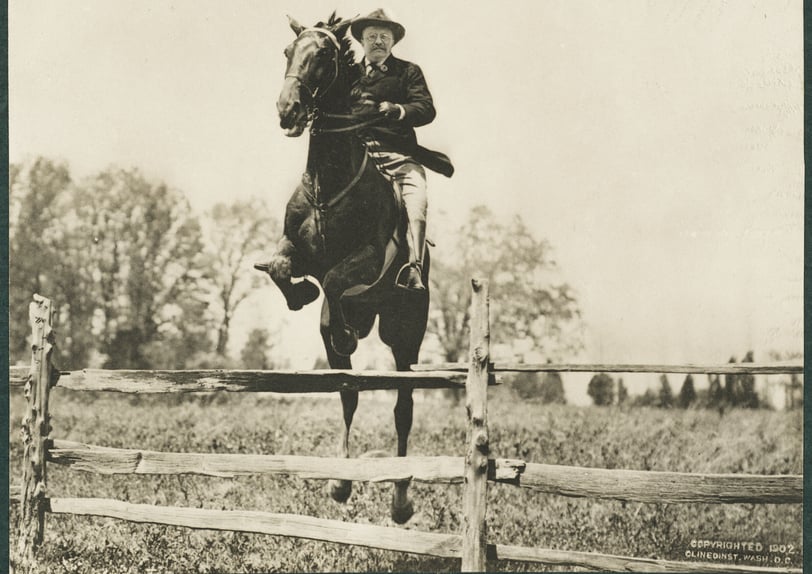Theodore Roosevelt, the health of a nation, and lessons for today
5/8/20243 min read


A Purpose Behind a Strenuous Life
If people know anything about Theodore Roosevelt, it’s often the fact that he had severe asthma as a child and struggled to build his body up so he could live a “strenuous life.” TR was a proponent of a strong mind and body his entire adult life.
While encouraging his fellow Americans to get outdoors and be physically active, he led his own children on special marches with one rule: never go around an obstacle. Whether it was a boulder to climb over or a stream to wade through, TR saw physical fitness as an opportunity to build character by facing and conquering challenges. He also valued education. He wrote to two of his sons, Kermit and Ted, saying that he was proud they were playing the “manly” sport of football, but did not want them to put so much time in it that their grades would suffer (1). Physical fitness was not an end point to be reached but a resource to be used to make one’s community better.
Patricia O’Toole, who wrote the excellent biography, “When Trumpets Call: Theodore Roosvelt After the White House,” is currently working on a book that looks into TR’s ideas and influence in American Health. She notes in a New York Times Opinion piece that TR was involved in public health from the beginning of his political career. As a young assemblyman in the state of New York, he worked to ban cigar making in homes, a common practice in the city of New York that caused serious health problems for all the family members, not just the ones making the cigars (2).
TR didn’t simply read about the conditions in the tenements of New York, he visited them. This practice would continue years later when he was a New York City police commissioner, going out late at night to see what his officers were doing when everyone else was asleep. TR was a voracious reader and author (as well as our 26th President) for sure, but he was no office bound bookworm. He believed in getting out into the field to see firsthand what was going on. This went the same for collecting game for the Smithsonian Institute in Washington, D.C., during African safaris as it did for living conditions of his fellow Americans in the tenements of New York.
Lessons for Today
According to a recent report by the U.S. Centers for Disease Control and Prevention (CDC), “Currently, at least one in five adults (20%) in each U.S. state is living with obesity3.” There are a host of reasons for this, but the cost of obesity is often limited to the financial cost to employers and the health care system. But what of the cost to the lives of people struggling with a host of health problems that come with obesity?
TR reminds us that our strength is meant to be used for something, something that matters. Being healthy isn’t the goal. Doing something that matters, whatever that may be to you, is, and our good health is what will allow us to do our best work. Any discussion on health must remember patients are people first, people who have the potential to fulfill a purpose only they can.
When we connect health to a larger purpose, we increase the motivation available to make the necessary changes that living healthy often requires. Staying perfectly healthy isn’t something TR would say is the goal, nor was it the way he lived. When he lost some of the vision in one eye during a boxing match, it was a price he was willing to pay to stay active, and it was also a fact he didn’t tell the other boxer or his wife.
When it comes to community health, we can go back to that 23-year-old assemblyman and follow his example: get out into the community. People get care in hospitals, but their illnesses are shaped by their environment. What is it that brings people to the hospital in the first place? How is that shaped by both personal and social factors?
We are in this together. The healthier we are as individuals, the stronger we can be as individuals, and the stronger we are as individuals, the stronger we can make our communities.
The Theodore Roosvelt Legacy Association will use this space to share health and community reports, challenges, and successes in order to encourage everyone to live a “strenuous life” that benefits them and the people around them.
Sources:
1.) TR’s letters to his children: Theodore Roosevelt's Letters to His Children | Art of Manliness
2.) Opinion | Theodore Roosevelt Cared Deeply About the Sick. Who Knew? - The New York Times (nytimes.com)
3.) New CDC Data Show Adult Obesity Prevalence Remains High | CDC Newsroom
